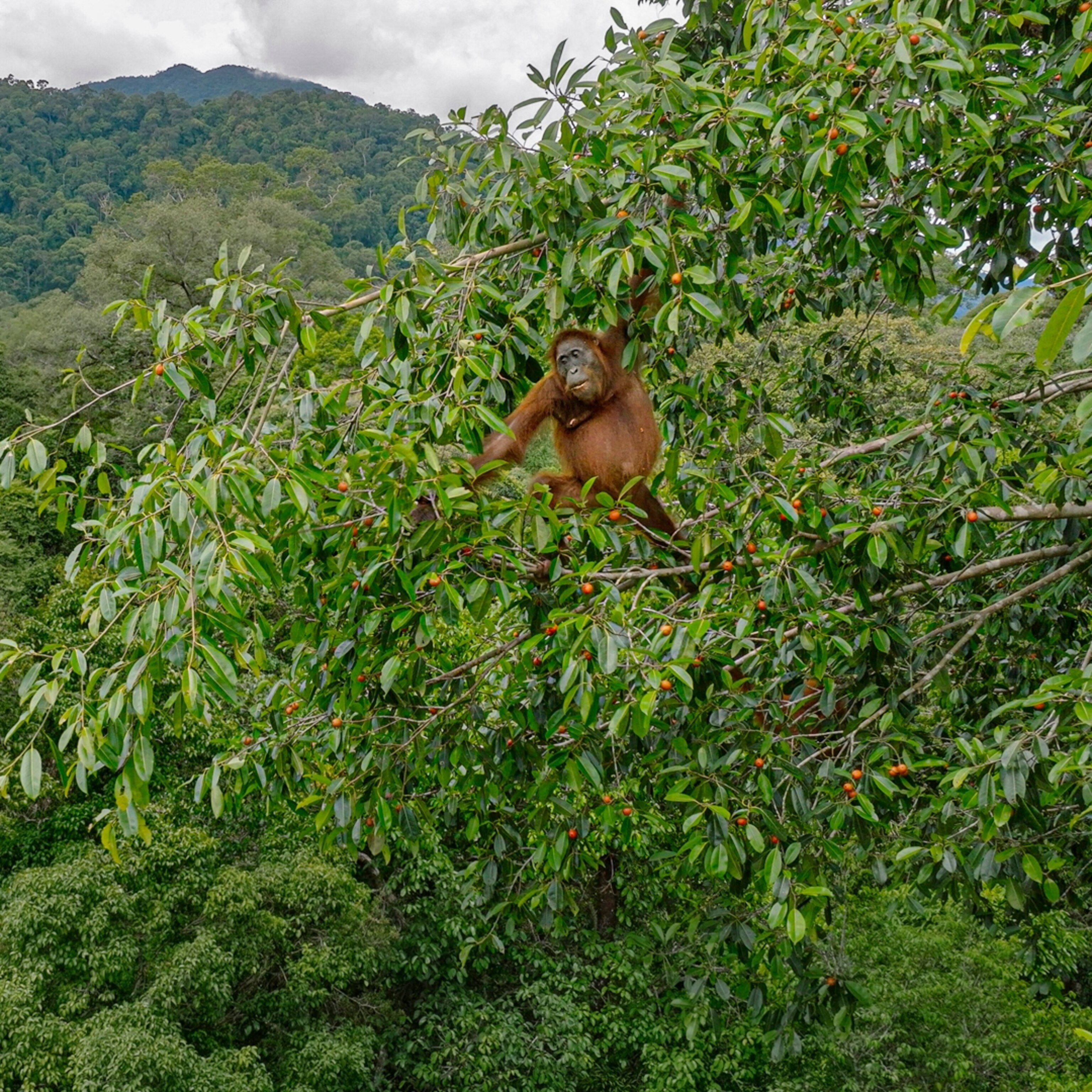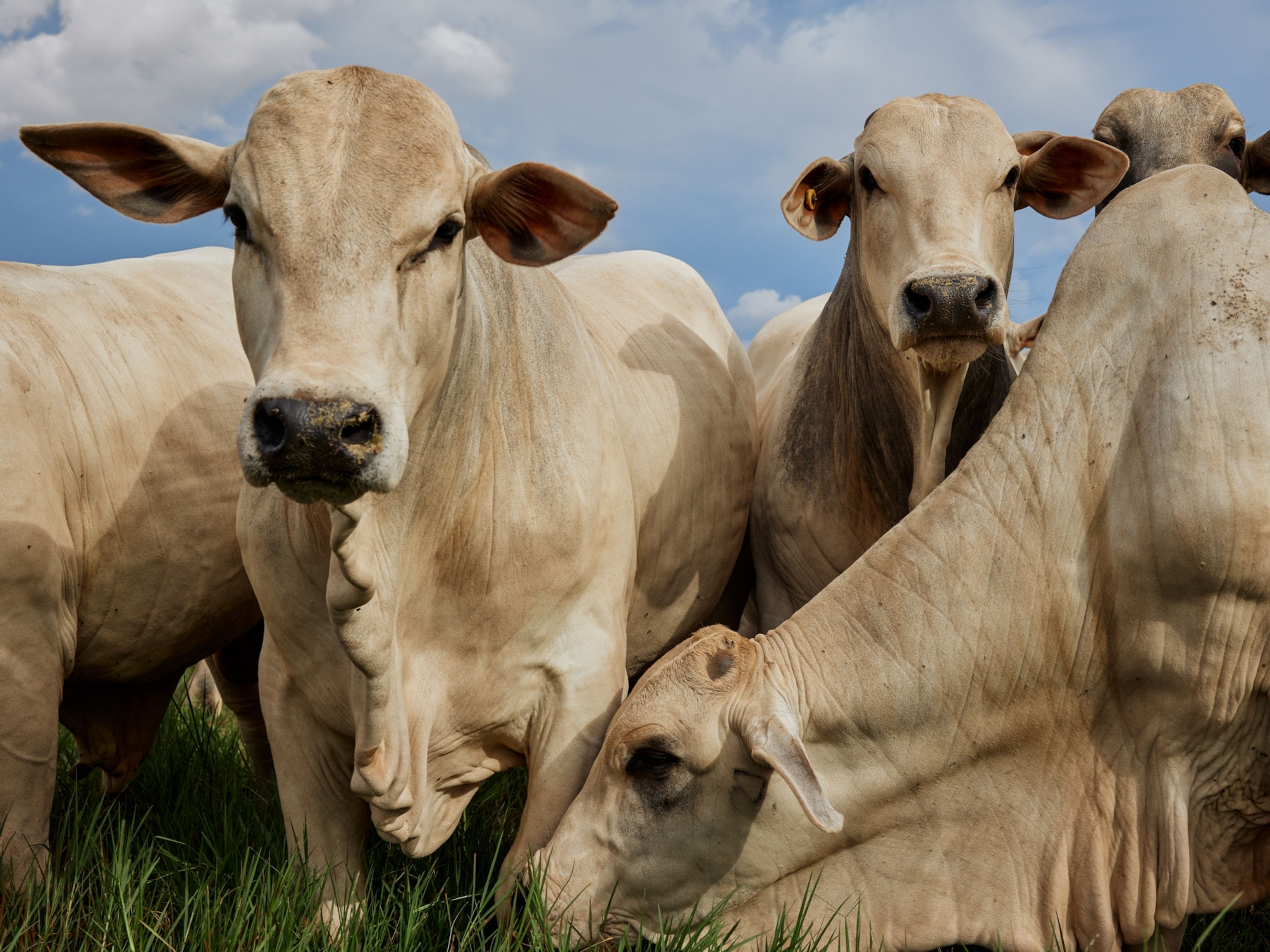
World food crisis looms if carbon emissions go unchecked, UN says
The impacts of climate change on land will raise food prices and risk widespread food instability, says the IPCC's latest report. But there are solutions.
The impacts of climate change on land are already severe and will substantially increase food prices, risking widespread food instability, says a new report from the Intergovernmental Panel on Climate Change (IPCC).
The Special Report on Climate Change and Land warned that a food crisis looms, especially in tropical and sub-tropical regions, if carbon dioxide (CO2) emissions go unchecked. Rising temperatures may also reduce the nutritional value of crops and will significantly reduce crop yields, the report said.
Extreme weather events have already increased in size and intensity and are playing a role in food price spikes in recent years, said Cynthia Rosenzweig, Coordinating Lead Author of the IPCC Special Report and a climatologist at the NASA Goddard Institute for Space Studies.
Extensive spring flooding in the U.S. Midwest this year led to extremely late planting of corn and soy crops, reducing potential yields. Drought wilted rice fields in Thailand and Indonesia, and scorched sugar cane plantations and oilseed crops in India.
Record-breaking heat waves in Europe this summer have affected many crops, including an expected 13 percent decline in French wine production.
“The potential for failure of multiple bread basket regions is increasing,” says Rosenzweig in a press conference from Geneva.
Bread basket regions are places that produce large quantities of grains like the U.S. High Plains, or that produce large volumes of rice, such as Southeast Asia.
Crop yields and animal growth rates are already falling. Nutrition levels are also expected to decline with continued CO2 emissions, putting already poor countries at very severe risk of increased hunger and malnutrition, she said.
Major reforms needed
The IPCC Special Report is the first-ever comprehensive look at the whole land-climate system. It involved 103 experts from 52 countries and weighs in at over 1300 pages. A 65-page “Summary for Policymakers” was released today. The summary was approved line-by-line by the world’s various governments at a special meeting this week in Geneva.
“It’s an incredibly ambitious and wide-ranging report. It was difficult to get agreement on the summary,” says Jim Skea, co-chairman of an IPCC working group.
The report calls for a transformation of food systems from industrial agriculture to sustainable land management, using practices found in organic and agroecological farming.
“We have to protect the quality of the entire landscape where food is produced,” says Louis Verchot of the International Center for Tropical Agriculture and a lead author of the special report.
That means preventing further degradation of soils, water, insect life, or any element of the biosphere from farm field to consumers’ tables, Verchot said.
Agriculture and global food systems need to be reformed because they are a big part of the climate problem, producing about one-third of total carbon emissions, said Mark Howden, director of the Climate Change Institute at the Australian National University.
However, they can be part of the solution. More efficient, sustainable forms of food production can reduce emissions, freeing up land that can be used to store carbon in soils and vegetation like trees, said Howden, a vice chairman of an IPCC working group.
“Reductions in food loss and waste, currently estimated to be 25-30 percent of the global food produced, could have similar benefits,” he says in an email.
Informed choices
Land is under tremendous development pressures. But carbon emissions can be reduced and ecosystems protected while increasing food production, said Pamela McElwee of Rutgers University and a lead author of the report.
“We don’t need any new technologies, just making informed choices,” says McElwee in a press conference.
Those include choosing to end deforestation in the tropics and protecting peatlands and coastal wetlands, along with cutting food waste and reducing meat consumption. It means choosing to scale up sustainable farming practices so that more food can be grown, while increasing organic carbon in soils, and helping small farmers improve their livelihoods, while enhancing biodiversity.
“I don’t want to say these choices are a no-brainers but…,” she says.
Protecting the world’s remaining forests as quickly as possible is a definite no-brainer, according to Charlotte Streck, head of climate think-tank Climate Focus. Streck says the sharp increases in meat consumption in China and Asia pose a threat to forests and the climate. Eating less meat is healthier, and since over 60 percent of agricultural land is used for meat production, cutting meat consumption would free up a lot of land for reforestation, she said.
“The inherent value of forests is gigantic,” says Carlos Nobre, a senior scientist at the University of São Paulo in Brazil.
However, the current Brazilian government under Jair Bolsonaro sees no economic value in protecting forests. Deforestation in the Amazon has accelerated 40 percent in the last year, Nobre said in a press conference.
“Few political leaders in the tropics see the value in protecting forests,” he says.
Countries need to integrate the findings of the special report into their climate action plans and make them part of their increased national commitments to reduce emissions, said Stephan Singer, senior advisor at Climate Action Network International. Under the Paris Agreement, most countries are expected to increase their climate pledges next year.
“These pledges should include no deforestation, legislated restoration of forests on degraded lands, support for sustainable agriculture and secure land rights for indigenous and local communities,” says Singer.
Richer nations need cut their own carbon emissions to zero before 2050 and provide massive funding to developing countries to protect their forests.
“Governments face hard choices now because they’ve been negligent for 30 years,” he said. “This is only way left to get to close to 1.5 C.”
As part of the 2105 Paris Agreement every country in the world agreed to limit global warming to 1.5 Celsius (2.7 degrees Fahrenheit) to limit the damaging impacts of climate change.
You May Also Like
Go Further
Animals
- Octopuses have a lot of secrets. Can you guess 8 of them?
- Animals
- Feature
Octopuses have a lot of secrets. Can you guess 8 of them? - This biologist and her rescue dog help protect bears in the AndesThis biologist and her rescue dog help protect bears in the Andes
- An octopus invited this writer into her tank—and her secret worldAn octopus invited this writer into her tank—and her secret world
- Peace-loving bonobos are more aggressive than we thoughtPeace-loving bonobos are more aggressive than we thought
Environment
- This ancient society tried to stop El Niño—with child sacrificeThis ancient society tried to stop El Niño—with child sacrifice
- U.S. plans to clean its drinking water. What does that mean?U.S. plans to clean its drinking water. What does that mean?
- Food systems: supporting the triangle of food security, Video Story
- Paid Content
Food systems: supporting the triangle of food security - Will we ever solve the mystery of the Mima mounds?Will we ever solve the mystery of the Mima mounds?
- Are synthetic diamonds really better for the planet?Are synthetic diamonds really better for the planet?
- This year's cherry blossom peak bloom was a warning signThis year's cherry blossom peak bloom was a warning sign
History & Culture
- Strange clues in a Maya temple reveal a fiery political dramaStrange clues in a Maya temple reveal a fiery political drama
- How technology is revealing secrets in these ancient scrollsHow technology is revealing secrets in these ancient scrolls
- Pilgrimages aren’t just spiritual anymore. They’re a workout.Pilgrimages aren’t just spiritual anymore. They’re a workout.
- This ancient society tried to stop El Niño—with child sacrificeThis ancient society tried to stop El Niño—with child sacrifice
- This ancient cure was just revived in a lab. Does it work?This ancient cure was just revived in a lab. Does it work?
- See how ancient Indigenous artists left their markSee how ancient Indigenous artists left their mark
Science
- Jupiter’s volcanic moon Io has been erupting for billions of yearsJupiter’s volcanic moon Io has been erupting for billions of years
- This 80-foot-long sea monster was the killer whale of its timeThis 80-foot-long sea monster was the killer whale of its time
- Every 80 years, this star appears in the sky—and it’s almost timeEvery 80 years, this star appears in the sky—and it’s almost time
- How do you create your own ‘Blue Zone’? Here are 6 tipsHow do you create your own ‘Blue Zone’? Here are 6 tips
- Why outdoor adventure is important for women as they ageWhy outdoor adventure is important for women as they age
Travel
- This royal city lies in the shadow of Kuala LumpurThis royal city lies in the shadow of Kuala Lumpur
- This author tells the story of crypto-trading Mongolian nomadsThis author tells the story of crypto-trading Mongolian nomads
- Slow-roasted meats and fluffy dumplings in the Czech capitalSlow-roasted meats and fluffy dumplings in the Czech capital






